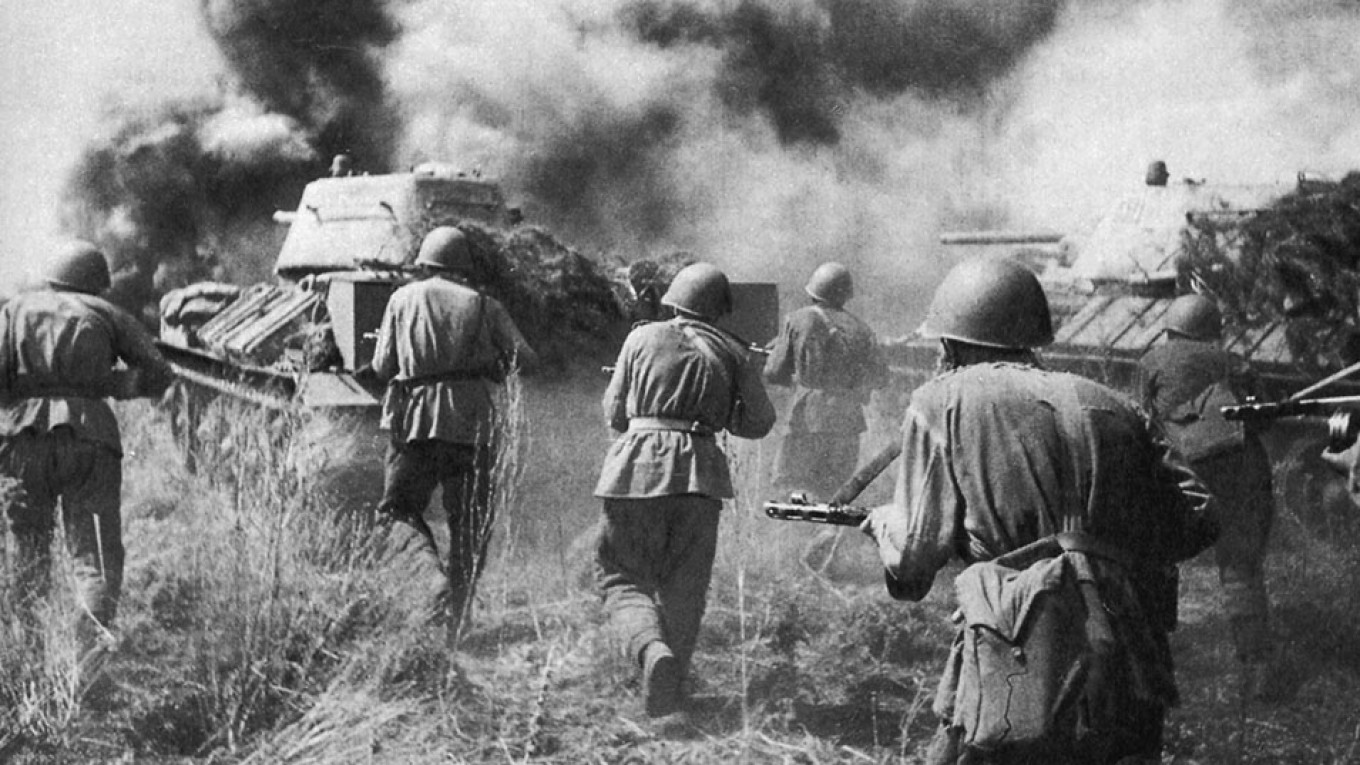On July 5, 1943, the largest tank battle in history began near the southern city of Kursk.
Over the course of the war, the Soviet lines had bulged into German-held territory near Kursk. This bulge or salient was 250 kilometers long from north to south and 160 kilometers wide. The Nazi army planned Operation Citadel to encircle and cut off the Red Army located within the salient and then renew their offensive.
But the Nazi armies took several months to prepare, massing a half million men, 10,000 guns and mortars, 2,700 tanks and assault guns and 2,500 aircraft. And while they prepared, so did the Red Army. By July the Soviet side was ready to fight back. They had deployed almost three times as many troops, more than 20,000 guns and mortars, 3,600 tanks, and 2,650 aircraft. There were another 500,000 men and 1,500 tanks held in reserve.
The battle began on July 5. Both sides suffered enormous losses, but on July 10 the Allied troops landed in Sicily, and Hitler moved his Panzer divisions to Italy. The fighting around Kursk continued for another six weeks, but the outcome was clear.
In the end, the Germans lost about 760 tanks, and the Russians lost about 3,800. A total of 6,000 tanks and assault guns were damaged or destroyed. Human casualties were enormous as well: the Germans lost almost 55,000 men, and the Red Army buried almost 180,000.
A Message from The Moscow Times:
Dear readers,
We are facing unprecedented challenges. Russia's Prosecutor General's Office has designated The Moscow Times as an "undesirable" organization, criminalizing our work and putting our staff at risk of prosecution. This follows our earlier unjust labeling as a "foreign agent."
These actions are direct attempts to silence independent journalism in Russia. The authorities claim our work "discredits the decisions of the Russian leadership." We see things differently: we strive to provide accurate, unbiased reporting on Russia.
We, the journalists of The Moscow Times, refuse to be silenced. But to continue our work, we need your help.
Your support, no matter how small, makes a world of difference. If you can, please support us monthly starting from just $2. It's quick to set up, and every contribution makes a significant impact.
By supporting The Moscow Times, you're defending open, independent journalism in the face of repression. Thank you for standing with us.
Remind me later.






